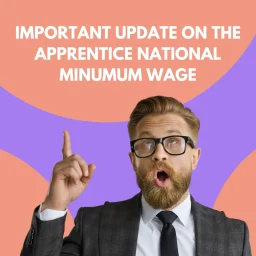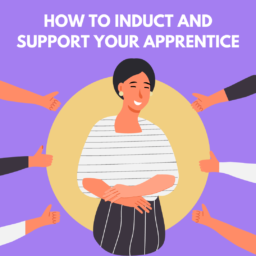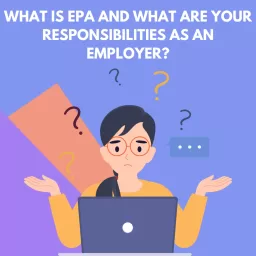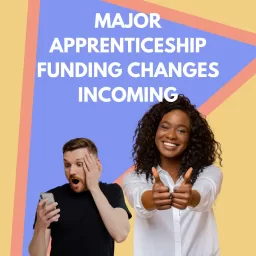What Are the Issues?
Are you facing challenges with your learner’s apprenticeship standard? Perhaps you’re encountering difficulties with the project requirements or finding your apprentice’s role too narrow or specific for collecting the necessary materials. No need to worry, as this issue is quite common, particularly in larger organisations. Typically, there are three primary areas that tend to create friction in the realm of apprenticeships within bigger businesses:
1. Compartmentalisation;
2. Manager Preparation and Buy-In;
3. Alignment of the Apprentice’s Role with the Standard.
While there may be other issues at play, in my experience working with major national organisations, one of these factors usually lies at the root of the problem. Here, I’ll outline some potential solutions.
A Word on Standards
It’s worth noting that the issues may not always originate within the organisations themselves. After all, organisational structures prioritise efficient operations. However, the challenges can often be traced back to the apprenticeship standards. The main problem with these standards is the lack of a middle ground when it comes to subject matter and requirements. Standards are often designed to accommodate every conceivable business need. While this concept is logical, it can prove impractical in practice, resulting in a “jack-of-all-trades, master of none” scenario. Consequently, standards become more of a hindrance to work around, and effective planning from managers becomes crucial to a learner’s success.
Addressing Compartmentalisation
When dealing with larger teams and organisations, one of the most common issues I encountered as a coach was the problem of compartmentalisation. Managers would often tell me that certain tasks or specialisms, such as meeting customer service requirements for the Digital Marketer standard, would be challenging due to the way the organisation was structured. This usually required creative solutions to achieve the desired results and gather essential evidence months down the line.
The Solution
The immediate remedy involves adequate preparation and buy-in from all stakeholders. Ideally, your training provider should sit down with you during the early stages of engagement and provide a clear roadmap for your learner to complete their apprenticeship. Unfortunately, this specification and guidance process often gets overlooked in the early stages. As a result, many line managers find themselves ill-prepared to support the learner. This leads to the next point.
Engaging with a Coach
If you’re in the early stages of the process, I recommend requesting a meeting with a coach to discuss the standard and its requirements. Gain a deep understanding of the standard and the evidence needed. This will give you time to identify potential challenges and develop plans to overcome them. For instance, if obtaining social media evidence is impossible within your team, consider whether your learner could shadow a social media team. Start thinking about how and when this can be arranged within the apprenticeship timeline.
Rotational scheme
A rotational scheme can offer invaluable benefits by providing your apprentice with diverse experiences across various marketing disciplines. This approach not only broadens their skill set but also fosters a deeper understanding of the marketing landscape. As apprentices rotate through roles such as social media, content creation, and analytics, they gain a holistic perspective, making them well-rounded marketing professionals who can adapt and excel in a dynamic industry.
Ensuring Role Suitability for the Standard
Over the years, I’ve worked with organisations where the apprentice’s role and the standard were misaligned, leading to a negative experience for the learner, the organisation, and the line manager. This often results in last-minute scrambles by managers to arrange necessary activities, causing delays and suboptimal outcomes for all parties.
The Solution
Depending on your role in the apprenticeship process, whether in early talent, HR, or as a hiring manager, ensure that the proposed role aligns effectively with the standard. It may require involving potential line managers if it’s not your area of expertise. Prepare a job specification as you would for any other hiring process and compare it with the standard requirements. If significant discrepancies exist, you may need to plan ahead or reconsider the standard or role. A productive approach is to request a discussion with a coach, who can guide you through the process more efficiently than digesting the entire standard.
Preparing Line Managers and Other Teams
I’ve had line managers tell me that they were caught off guard by the sudden introduction of an apprentice. This is far from ideal, as a smooth operation from day one is essential. While coaches can help salvage such situations relatively easily, it can be more challenging for line managers. In some cases, it takes several months for line managers to adapt because they have to juggle this alongside their primary responsibilities. This time could be more effectively utilised.
The Solution
Ensure that everyone involved with your apprentice is well-prepared for their responsibilities and is aware of the apprenticeship standard. I advise briefing and preparing all individuals associated with the apprentice so they can offer the necessary support. This might even involve communicating with other teams within the organisation to inform them that the learner may be working with them at some point in the future. Additionally, check if your apprenticeship provider offers a manager induction. If not, request one, ideally before the apprentice’s start date to allow ample preparation time for all stakeholders.
The Key Takeaway
You may have noticed that I emphasise the importance of sitting down with the training provider, particularly with a coach, as a pre-start activity. Receiving guidance from this single point of truth, who you’ll be working with for 12+ months, can help you identify potential issues and make necessary plans before you kick off. For larger organisations, this step is critical, as the bigger the organisation, the more challenging it can be to adapt and pivot swiftly.
Are You Facing Challenges?
If you’re encountering difficulties and need a third party to discuss your issues, don’t hesitate to reach out to us. While we specialise in marketing apprenticeships, much of what I’ve discussed applies to various standards. Whether you want to have a conversation or seek guidance, please email us at info@themarketingtrainer.co.uk, and we’ll explore how we can assist you.
















